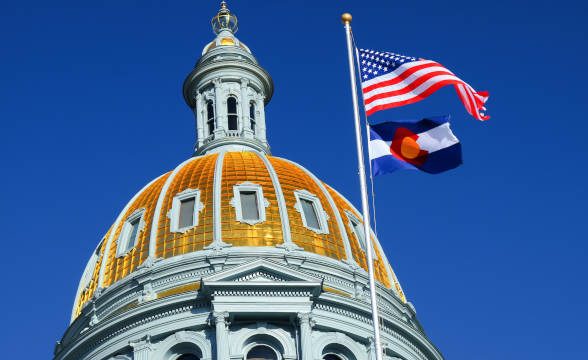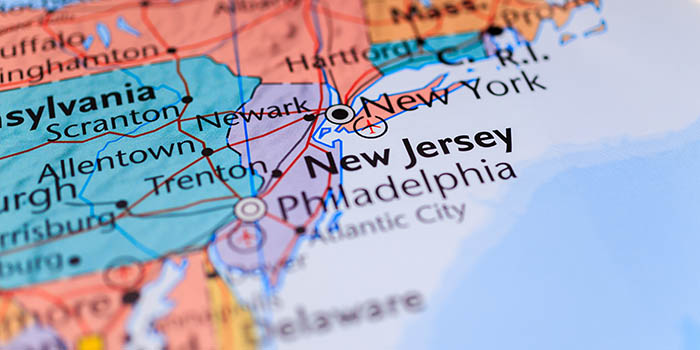Colorado Sports Betting Recorded a Stellar FY 21-22 Year

Colorado’s Department of Revenue recently released its annual summary of the state’s sports betting sector. The fiscal year 2021-2022 saw sustained growth in the post-covid period thanks to various legislative initiatives which gave Colorado operators greater control over their business.
Online Operators Dominated the Market
Sports betting fans in The Centennial State spent $4,81 billion in FY 2021-22. Only 5.87% of players managed to snag a win, though this still equates to over $4,5 billion, which made its way back into the hands of bettors. Basketball was a fan favorite, accounting for 24.9% of all bets and drawing in $1,20 billion in wagers. Football came second at 16%, and Baseball secured third place with 10.5%.
2021 continued the domination of online sports betting over land-based alternatives. 2020’s COVID-related closures and the increasing popularity of live wagering caused an ever-increasing number of people to sign up with one of Colorado’s 24 licensed online sportsbook operators. Retail sports betting accounted for only 1.2% of 2021’s total handle, which is why almost all land-based bookmakers are also some of the state’s largest casinos. The data suggest that solely relying on retail wagering has become unsustainable.
Sports Betting Taxes Go to a Good Cause
Sports betting in 2021 contributed a healthy $12,4 million in taxes to Colorado’s government. Operators recorded an impressive gross gaming revenue of $282,6 million, while proceeds totaled $102,7 million. The industry is still relatively new in the state, only becoming legal in 2019. The bill to implement this form of gambling only narrowly passed, predominantly due to the Colorado administration’s promise to use sports betting proceeds to combat the state’s severe water shortage problems. The state’s first four operators launched in May 2020, and that number quickly skyrocketed.
Almost the entire 10% tax on sportsbooks currently goes towards the Water for Colorado initiative. Since its inception in 2020, sports betting has helped raise $14.7 million for the cause. According to state officials, tax revenue from sports betting still accounts for a negligible amount of the water plan’s total needs. However, the sum will naturally increase as the sector matures.
The (gaming) division is happy with the revenues exceeding expectations and how positive the impact will be in the fall for the water plan.
Suzanne Karrer, Colorado Division of Gaming spokeswoman
The State’s Regulator Recently Faced Controversy
Despite the Colorado Division of Gaming’s dedication to the water plan, its profit-oriented mindset may be causing some unintended consequences. The gambling regulator recently received criticism from the Office of the State Auditor for failing to enforce its rules and a large number of newly issued temporary licenses. The audit also revealed discrepancies between the daily reports of operators and their monthly summaries.
Division of Gaming officials denied the accusations and was adamant that the authority had several implementation teams who work hard to strictly and fairly enforce regulations. The division also drew attention to their efforts toward responsible gambling and the large sums that taxation contributed to the water plan. Regardless of any potential misdoings, the yearly financial report at least demonstrates that Colorado’s regulator can ensure that operators suitably contribute to the state’s bottom line.
Deyan is an experienced writer, analyst, and seeker of forbidden lore. He has approximate knowledge about many things, which he is always willing to apply when researching and preparing his articles. With a degree in Copy-editing and Proofreading, Deyan is able to ensure that his work writing for GamblingNews is always up to scratch.















